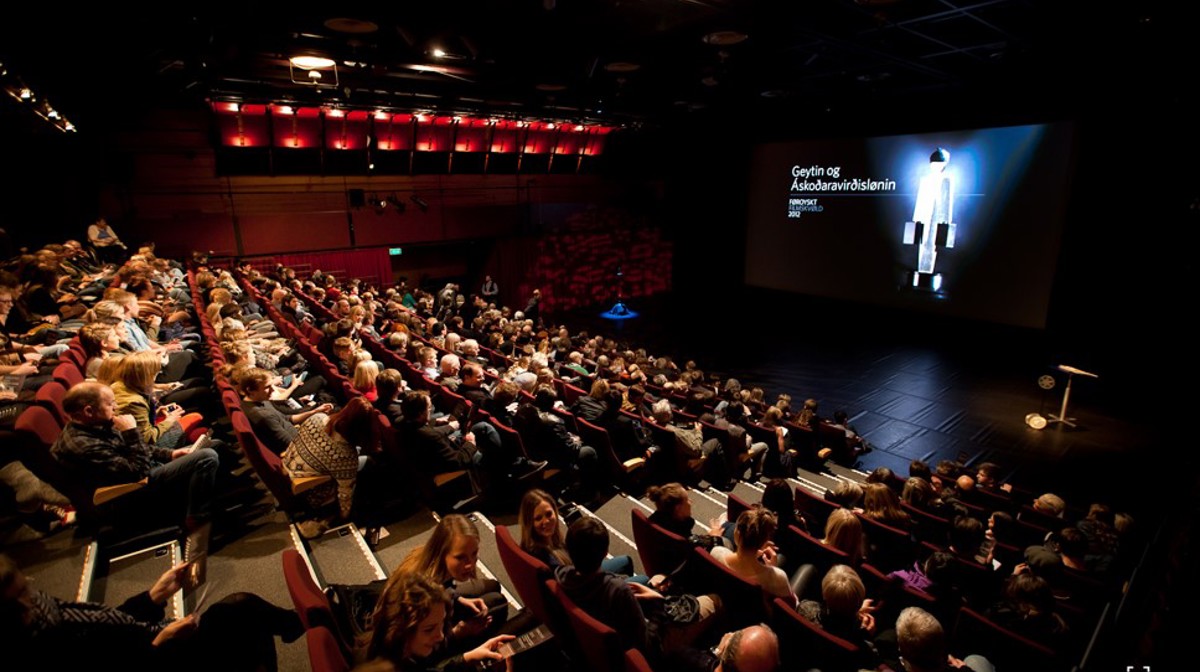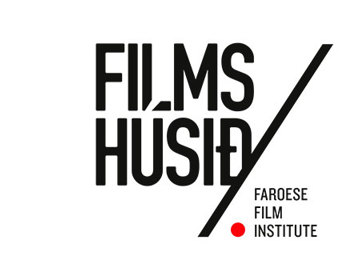
These beautiful isles in the North where first filmed in 1907 by Ole Olsen, founder of Nordisk Film, while he was accompanying the Danish Royal Family on a visit to the Faroe Islands, and since then they have been used as the backdrop for several other movies, such as; Farornas Ö (SE1930), Schatten über den Inseln (DDR1952), Selkvinnen (NO1953), Tro, håb og trolddom (DK1960), Barbara - wild wie das Meer (BRD1961), Barbara (DK1997), Dansinn (IS1998) and Buzz Aldrin, hvor ble det av deg i alt mylderet? (NO2011). Not only the mesmerizing nature on the Faroe Islands has captured the imagination of filmmakers, but also the stories and legends told here. One such example is Spanish filmmaker Miguel M. Hidalgo, who made films about the story of Páll Fangi and the book “Rannvá” by Dagmar Joensen-Næs in the 1970’s. The stories told on the Faroe Islands have also inspired Danish filmmakers, including Leo Hansen, Jørgen Roos, Knud Leif Thomsen and Ulla Boje Rasmussen.
The Faroe Islands have a long history as the location or subject of foreign films, but in recent years, local filmmaking has blossomed and it is coming into its own quite well.
Dánjal Jákup Mortensen and Jákup Andreas Arge began making short films about daily and cultural life on the Faroe Islands in the 1960’s and the production company Tór Film did the same in the in the 1970’s. They made the invaluable biographical documentary Tríggir Varðar (1977) about Faroese writers, William Heinesen, Christian Matras and Heðin Brú.
The national television channel, Sjónvarp Føroya, was founded in 1984. Their primary goal was to produce television in the native language, Faroese. Even though their focus was mainly on news programs and documentaries, they have also produced two fictional films. Alfred (1986) by Eir í Ólavstovu and Stjórin er á floti (1987) by Øssur Winthereig.
One cannot discuss Faroese filmmaking, without mentioning the pioneer, Katrin Ottarsdóttir. In 1989, she released the first full-length Faroese feature film, Atlantic Rhapsody, to an international audience. In 52 scenes, it takes a kaleidoscopic look at Tóshavn during a single day. A decade later, Ottarsdóttir made her next full-length film, the road trip film Bye Bye Bluebird (1999). In 2008-2009, Ottarsdóttir released a biographical documentary trilogy, portraying three Faroese artists. Eingin kann gera tað perfekta (FO2008) about Hans Pauli Olsen, Ein regla um dagin má vera nokk (FO2008) about Tóroddur Poulsen and Sporini vaksa úr orðum (FO2009) about Jóanes Nielsen. Ottarsdóttir then made five B&W short films called Lejlighedsminder in 2012. Her most recent production Ludo, an autobiographic psychological drama, has won several awards, including “Best Feature Thriller” at the 9th European Film Festival in 2015.
Today, young talent, such as Sakaris Stórá, Anton Petersen and Heiðrikur á Heygum are further cultivating the still fresh fields of Faroese filmmaking, and are even starting to attract attention from abroad. At the Berlin International Festival in 2014, Sakaris Stórá’s short film, Vetrarmorgun (FO2013), was nominated for three different awards, of which it won “The Special Prize of the Generation 14plus International Jury” and Marianna Mørkøre and Rannvá Káradóttir have found their way to international festivals and fashion shows through their surrealistic short dance projects in B&W.
Geytin
The first Faroese film festival, Geytin, held in 2012 and it hands out two awards each year. A board of experts elects the winner of the main prize, Geytin, while the prize, Áskoðaravirðislønin, is awarded by viewers’ choice. The first winner of Geytin in 2012 was Sakaris Stóra, while in 2014, Heiðrik á Heygun won both Geytin and Áskoðaraviðrislønin.
The Faroese Film Institute - in Faroese Filmshúsið - was established in 2018 with purpose of advancing and inspiring the Faroese film industry and promote the Faroe Islands as an attractive film and TV location.
With a 25% reimbursement scheme offered for film and TV production and incredible settings in some of the most dramatic and beautiful islands in the world the Film Institute focus on promoting Faroe Island abroad, develop professional skills within the Faroese film environment.

